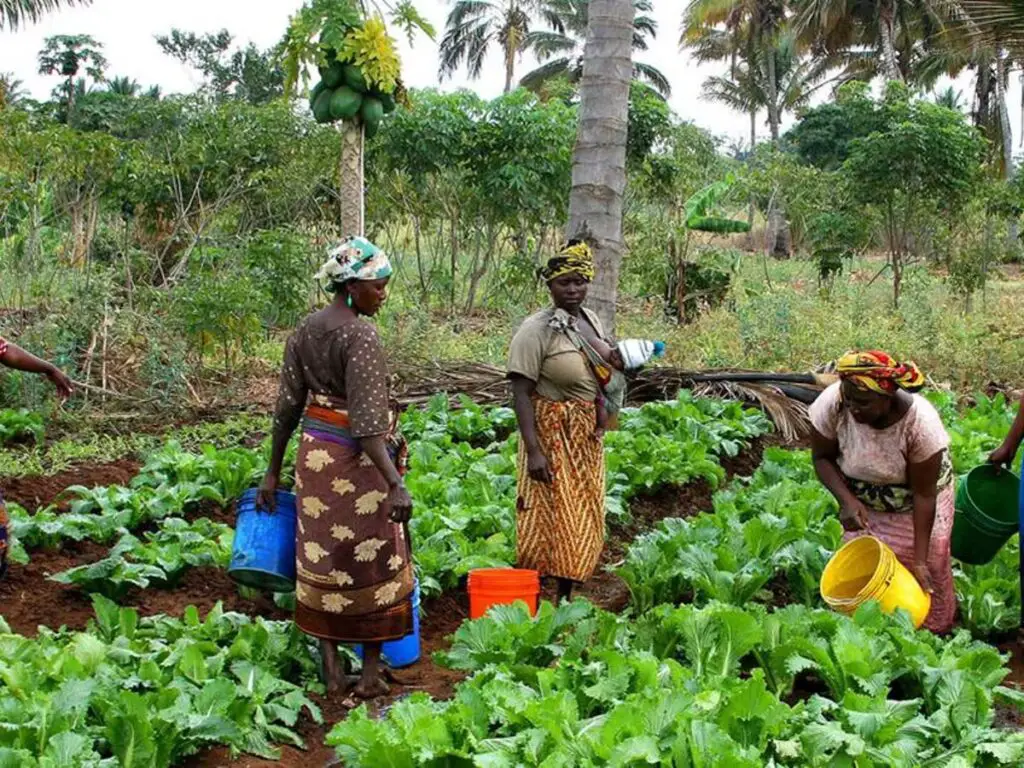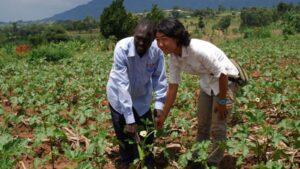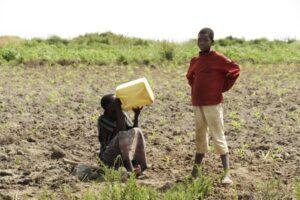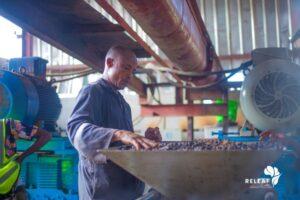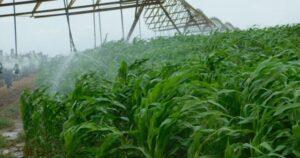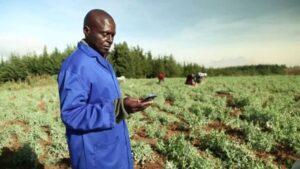- History beckons as push for Kenya’s Ruto to address US Congress gathers pace
- IMF’s Sub-Saharan Africa economic forecast shows 1.2 percent GDP growth
- The US Congress proposes extending Agoa to 2041, covering all African countries
- Millions at risk of famine as fuel tax row halts UN aid operations in South Sudan
- Empowering the Future: Humanity Protocol’s Dream Play Initiative
- TikTok Community Guidelines update aims to curb hate speech and misinformation
- Rwanda sees 39% surge in bank borrowers as Sacco and MFI loan uptake declines
- Kenya Ports Authority wins dispute case over cargo release
Agribusiness
- Expensive loans remain a significant issue across populations engaged in agriculture in Nigeria, Tanzania and Zambia.
- A report by the Alliance for Green Revolution in Africa (AGRA) says capital injection is a significant strategy agribusinesses use to survive.
- Moreover, agribusinesses face high operational costs from fuel prices and low-profit margins driven by currency devaluations.
The lack of agriculture-friendly financial systems saw agribusinesses turn down expensive loan options in the market, with only 15 per cent taking on commercial capital in 2023 and the rest sourcing capital from friends, family and their business savings.
The incentives by the government channelled towards agriculture failed to adequately cushion Agribusinesses from economic shocks, a new report by Alliance for Green Revolution in Africa (AGRA) has revealed.
The African Agribusiness Outlook survey is conducted annually to gain insights into the sector’s top priorities, how they address challenges, and what SMEs see as opportunities.
A reflection …
- Sustainable agriculture employs 65-70 percent of Africa’s labour force.
- Only two to three percent of African renewable water resources are usable compared to the 5 percent worldwide.
- In 2019 a report revealed that Africa produced more than 50 percent of the world’s cassava.
A severe drought has left millions of people in Africa dependent on grain from Ukraine, a country at war with Russia, yet a number of crops that could support more climate-resilient and healthful food systems in sub-Saharan Africa continue to receive limited attention.
Across Africa, cassava, sugarcane and maize stand out for supporting millions of families in governments’ quest to maintain food security
Sustainable agriculture is one of the highlights that support Africa’s economic development. For decades these cash crops in Africa have accounted for almost 20 percent of the entire continent’s revenue. It has further advanced and introduced concepts such as agritech, significantly teaching better farming …
- Limited internet access is inhibiting the uptake of agricultural innovations across Africa.
- While Agriculture remains the backbone of Africa’s economy, farmers in rural areas are yet to benefit from the innovative solutions designed to increase productivity within the sector.
- Innovative solutions are the key to boosting employment and increasing youth participation in the agricultural sector.
Limited internet access is inhibiting the uptake of agricultural innovations across Africa. This is according to Hon. Frank Tumwebaze, Uganda’s Minister for Agriculture, Animal Industry and Fisheries.
Speaking at the sidelines of the two-day Africa-Korea Agtech Innovation Summit held in Nairobi, Hon. Tumwebaze, said, “While Agriculture remains the backbone of Africa’s economy, farmers in rural areas are yet to benefit from the innovative solutions designed to increase productivity within the sector.”
The Uganda Minister emphasized the role of Governments’ investment in internet penetration across Africa’s rural areas. This will aid in adoption of …
When the government of Uganda launched the first of four regional agricultural mechanization centres in July 2020, questions were raised about their use and viability.
The government unveiled a countrywide plan to promote agricultural mechanization whereby human labour along the entire value chain is replaced by
animal power, fossil energy, or renewable energy.
The centres will host excavators, self-loading trucks, heavy earth-moving equipment, bulldozers, and mobile
mechanization workshop trucks for farmers on a lease or hire basis on top of providing them training and advisory services.
According to the African Union Development Agency, African farmers have ten times fewer mechanized tools per
farm area than farmers in other developing regions, and access has not grown as quickly as in other regions.
“50-85% of farm work continues to be done manually, without the support of animals or machinery. Only 10% of total power for land preparation in sub-Saharan Africa comes from …
Across the region, agriculture has been a crucial economic activity that has to levitate communities’ economies and promote some major changes, in farmer’s lives.
Farming has changed significantly over the past decade. This change has not occurred or is being adopted evenly across the globe. Europe, North, South America, and Asia have been developing and utilizing agriculture mechanization quite fast.
However, the latter has not been active in sub-Saharan Africa for a while. For the record, farming practices present during the 1960s when most of Africa, was liberating itself from colonial hands, are largely being divorced currently. …
As the number of people demanding food supply has kept increasing since 2015 from 1.1 million to 2.7 million, Cameroon is striving to keep its farming systems updated and strong. According to the Aid and International Development Forum, 57 per cent of the rural people live in poverty.
Cameroon has more than 28 million people and like the rest of other African nations, it is endowed with rich natural resources, including oil and gas, but more importantly, Cameroon has a wide variety of agricultural products, such as coffee, cotton, cocoa, maize and cassava.…
The vulnerabilities these young people face remain largely unaddressed, limiting their potential and ability to positively and gainfully contribute to the development of their economies.
With the promotion of science, technology, research, innovation, and building on knowledge and human resources for growth and sustainable development, it is possible to mitigate the looming unemployment crisis.
Innovation, especially in agriculture is one way to bridge the unemployment gap. By adopting technology, the continent is able to leverage the young to increase productivity in the agricultural sector. To address the challenges in the sector, companies are coming up with novel ways of ensuring that the needs of the estimated 1.3 billion people will be met by 2030. …
Large-scale farmers usually own specialized and custom-built equipment and keep up with recent technological advancements. Those in the medium-scale farming system mostly hire machinery while for small-scale farmers, mechanisation is limited to a few farm operations like land preparation. Other operations are done manually. Private service providers offer mechanisation services for small scale farmers where the use of machinery is very low in relation to the medium and large-scale agricultural production systems.
Most of Kenya’s livestock is raised in extensive systems with communal grazing and free-ranging of rain-fed rangelands. Intensive production is practised in the high rainfall areas, semi-intensive systems are found in semi-arid lands and extensively in arid areas. The use of mechanised livestock production systems is very low. However, the potential for mechanisation is high to meet the growing demand for livestock and livestock products. …
Kenya’s National Cereals and Produce Board has signed a Memorandum of Understanding (MOU) with Safaricom’s DigiFarm Kenya Ltd to help small-scale farmers in Kenya access post-harvest management services through the digital platform.
The MoU comes at a time when a new survey has indicated that African farmers are missing out on agritech innovations that could supercharge the sector with opportunities for youth.
The board said it shall offer post-harvest management services to farmers present on the platform, while DigiFarm will connect NCPB to small-scale farmers, who will in turn, access NCPB services at prevailing rates.
DifiFarm bypasses middlemen, giving small-holder farmers direct access to low-cost seeds and fertiliser, credit providers, and bulk purchasers of their produce.
NCPB Managing Director J. Kimote said the MoU is aligned to the agriculture hub model that the board is required to establish under the Reforms.
“The hub shall provide a one-stop shop for farmers …





